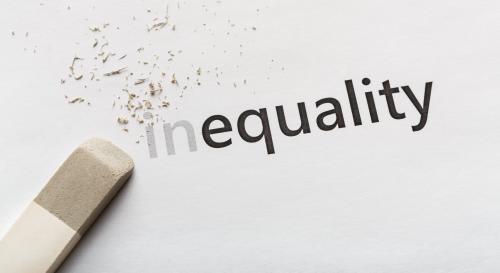
Contracting for health outcomes: from concept through theory to implementation
In this new report, jointly authored with colleagues from the University of York and The Royal Orthopaedic Hospital NHS Foundation Trust, we set out in detail how an outcomes-based contract for elective knee replacements might be constructed, and the potential implications for commissioners, providers, and policy-makers.

Playing our part in conversations about death
“Dad, why are all your ‘peptalks’ about death?” Children can be a source of fundamental insight. They seem to specialise in feedback of the unvarnished, unmediated and fully caffeinated variety. The kind of feedback that cuts straight to it. My youngest daughter, mid-way through our sunny walk down the hill to school, pressed on: “And you wear black all the time. You look like a crow…” Fundamental insight, and now fashion advice. This was quite the school run.

Ghosted by an old friend
“…personal contact was a vital element in general practice from the beginning. By 1959 50% of people in England regarded their GP as a personal friend.”

How data makes things worse
All light brings shade. My list of ‘changes that have been all upside and no downside’ is short and debatable.

Leadership training and support for organisational development: an offer from the Strategy Unit
The Strategy Unit has long been known for the quality of its analytical work, and the clear, critical thi

Diagnosing harms?
All medicines are poisons. Everything that cures could kill if administered in the wrong doses, to the wrong people, at the wrong times, in the wrong ways.

Decision Making Blog #8: Infinity-shaped debate
I’m argumentative.

Decision Making Blog #7: Should we 'go with the gut'? Yes, but...
I’m not sure there’s a superlative strong enough to describe ‘T

Decision Making Blog #6: The most powerful question in decision making?
I’m a fan of Shane Parrish and his organisation Farnam Street (strapline: ‘Helping you master the best of

Decision Making Blog #5: Reaching disagreement
Two starting points:

Decision Making Blog #4: Embrace uncertainty - it's a badge of honour
Imagine this:

Decision Making Blog #3: The black hole of the status quo
Learning is one of the joys of teaching. And I’ve learnt a lot while helping people develop their decision making skills.

Decision Making Blog #2: Two under-appreciated sources of leadership power
Some forms of leaders’ power are obvious. Leaders hire and they fire.

Decision Making Blog #1: Better decision making: a neglected route to improvement?
There are two main routes for health and care services to improve the health of the populations they serve. The

What are the ethical challenges in addressing inequities?
Produced by Angie Hobbs - the world’s first Professor in the Public Understanding of Philosophy – this paper examines the ethical questions raised by our report outlining strategies for reducing inequity.

Helping ICSs to reduce inequalities in access to planned care
Are there inequalities in access to planned care? If so, what are they? Which groups ‘gain’ and which groups suffer? And what could be done to address any inequalities? In pursuing their objective of reducing inequalities, what could Integrated Care Systems (ICSs) do? What strategies and approaches are likely to be successful?

Blog: Strategies to reduce inequalities in planned care
MDSN responds to recent reports addressing the NHS waiting list crisis

‘Might’ is right
A good idea can be ruined by over-selling.
